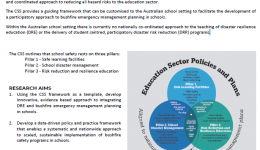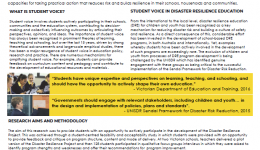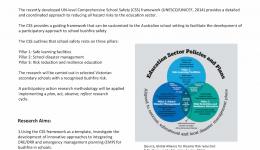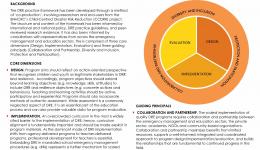Schools have a school bushfire plan to keep students, staff and the broader school community safe in the event of bushfire. Matthew’s research will examine the degree to which students, staff and community stakeholders are involved in school bushfire planning. His research will investigate student, staff and community stakeholder understanding of local bushfire risk, whether there are concerns related to bushfire and how involved each group are in school bushfire planning. The research aims to facilitate the development and implementation of a participatory approach to school bushfire planning.
As well as through his PhD, Matthew is involved in the CRC as an end-user in his role in education at the Victorian Country Fire Authority.
Student project
Lead end user
Children represent the most vulnerable demographic group in disasters – across the globe it is estimated that 30-50% of fatalities are children - while they are also most vulnerable to psychosocial impacts. Early research indicates that children are a resource for reducing current disaster risks and can also mitigate future risks.
The role of children’s disaster education in managing risk has been recognised as a major priority in the federal government’s National Strategy for Disaster Resilience. Yet, despite a recent surge in child-centred disaster research, the social, psychological, economic and political mechanisms that enable children to both understand and take action to reduce disaster risk remain largely unexplored and the evidence-base for best-practice remains limited.
This project is conducting a nationwide evaluation of programs and strategies based on a child-centred disaster risk reduction framework. It will develop cost-effective programs that reduce the risk and increase resilience for children, schools, households and communities.









